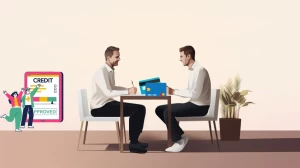
Quiz Questions On Financial Literacy and Debt Management
Take the quiz to test your financial literacy and discover answers to key questions on effective debt management.
by Kowsalya
Published Nov 09, 2023 | Updated Nov 09, 2023 | 📖 4 min read
Why is It More Difficult to Get Out of Debt When Only Paying the Minimum Payment?
Answer: When you pay only the minimum on your debt, you're basically feeding a growing monster of interest. It keeps accumulating on the remaining balance, making it harder to escape the debt cycle. To break free faster, aim higher than the minimum—paying more reduces the total owed and cuts down on interest.
If Your Credit Card Limit is $800 and Your Outstanding Balance is $725, What is the Largest Amount You Can Charge on That Card in the Upcoming Month?
Answer: $75
Explanation:
To find out the maximum amount you can charge on your credit card next month, subtract your outstanding balance from your credit card limit. In this instance, deduct $725 from $800:
Largest amount = Credit card limit - Outstanding balance
So, Largest amount = $800 - $725
The result is $75. Hence, the most you can charge on your credit card in the upcoming month is $75.
Write Down Two of the Four Key Years Mentioned in the Brief History of Debt and Why They Were Important.
Answer: Two key years in the brief history of debt are:
- 1972: This is the year when Congress created the law that allowed the establishment of Sallie Mae. This marked a significant milestone as it laid the foundation for what resembled the inception of student loans.
- 1976: In this year, Bank Americard, later known as Bank of America, underwent expansion, and its name was changed to VISA. This transformation played a crucial role in the evolution of credit and debt instruments, influencing the financial landscape.
These years are important because they represent pivotal moments in the development of financial instruments and institutions, shaping the way we perceive and manage debt today.
Having a High Debt-to-income Ratio or Defaulting on Your Loan Can Bring Down Your Credit Score. A Low Credit Score on Your Credit Report Can _____.
Answer: A low credit score makes it much harder to borrow money in the future. Lenders use it to gauge the risk of default, and a lower score signals higher risk, making them less likely to approve new loans or credit.
What’s a Good “Rule of Thumb” for How Much Student Debt You Should Consider Taking to Attend College?
Answer: A good rule of thumb for student debt is not to exceed the expected first-year salary after graduation. This aligns with responsible financial planning and prevents students from falling into a difficult-to-repay debt cycle. Following the 20/10 rule, limiting debt payments to 20% of annual income and 10% of monthly income ensures manageable repayment without compromising a significant portion of one's earnings.
Other Than Credit Card Usage, What Are Some Other Reasons People Say They Are in Debt? Do Their Reasons for Carrying Debt Seem Valid to You? Why or Why Not?
Answer: People find themselves in debt for reasons beyond credit card usage, such as student loans for education, mortgages for homeownership, medical expenses, personal loans for various needs, and lifestyle choices leading to overspending. The validity of these reasons depends on factors like return on investment, affordability, and overall financial impact. Responsible debt use involves careful consideration and evaluation of alternatives.
If Gabi Wants to Pay Off Her Student Loan by Starting With a Low Amount and Then Increasing It Every Two Years, What Type of Repayment Plan is Best for Her?.
Answer: If Gabi wants to start with low student loan payments and increase them every two years as her income rises, the best option for her is the "Graduated Repayment Plan." This plan allows for manageable initial payments that gradually increase over time, aligning with her expected income growth.




